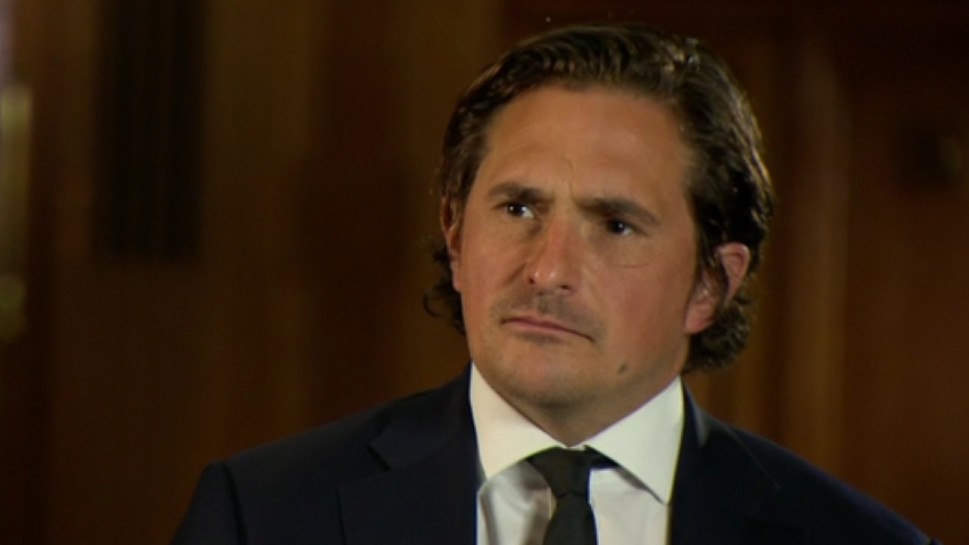What led to Johnny Mercer’s fiery exit from government
Sacked veterans minister blasts Boris Johnson’s ‘cesspit’ administration on his way out

A free daily email with the biggest news stories of the day – and the best features from TheWeek.com
You are now subscribed
Your newsletter sign-up was successful
Johnny Mercer has claimed Boris Johnson’s government is the “most distrustful, awful environment” he has ever worked in after he was fired as veterans minister this week.
The Plymouth Moor View MP, who had held the role since 2019, gave several interviews yesterday about his departure.
He claims he told Downing Street out of courtesy about his intention to resign but No. 10 leaked his plans and then sacked him via text message.
The Week
Escape your echo chamber. Get the facts behind the news, plus analysis from multiple perspectives.

Sign up for The Week's Free Newsletters
From our morning news briefing to a weekly Good News Newsletter, get the best of The Week delivered directly to your inbox.
From our morning news briefing to a weekly Good News Newsletter, get the best of The Week delivered directly to your inbox.
Why did Mercer want to resign?
Mercer, who retired from the British Army as a captain in December 2013 after ten years’ service, became an MP in 2015 with the stated aim of improving the care of veterans. When Johnson was elected as Tory leader, Mercer was made minister for defence people and veterans in the Ministry of Defence and minister for veterans’ affairs in the Cabinet Office.
However, he decided to resign over his growing “frustration with the government’s failure to offer legal protection to ex-soldiers facing prosecution over killings during the Troubles”, reports The Telegraph.
The newspaper says Mercer described the prosecution of elderly veterans over the events in Northern Ireland in the 1970s as a “huge scandal” and an “appalling betrayal”.
A free daily email with the biggest news stories of the day – and the best features from TheWeek.com
Two soldiers will go on trial next week over the murder of a former official IRA commander who died in Belfast in 1972. And while the Overseas Operations Bill going through parliament will offer military personnel protection from prosecution in overseas conflicts, it does not include Northern Ireland veterans.
What happened next?
In an interview with BBC Two’s Newsnight, Mercer said it had been “incredibly lonely” trying to uphold the government’s promises to veterans. He claims he told Downing Street he planned to resign because it was the “courteous thing to do” and then “three hours later in was in the newspapers”.
He continued: “They asked me to resign early. I said I wasn’t going to be bullied into it. I left the room and I was sacked by text.”
What else has Mercer said?
The Telegraph says Mercer has launched an “excoriating attack on Mr Johnson’s administration”, accusing the PM of surrounding himself with “cowards” and “desperately weak” advisers.
He told the newspaper he had been treated “like s*** throughout” and claimed: “Almost nobody tells the truth.”
In another interview on Times Radio, he likened working in government to being in a “cesspit”.
“This is the most distrustful, awful environment I’ve ever worked in,” he said.
What has the government said?
Johnson and other ministers have said they intend to introduce legislation related to Northern Ireland veterans “in due course”.
“Insiders, however, said they could not confirm whether a bill would be listed in next month’s Queen’s speech, reflecting the complexity of a problem that evokes strong feelings across the political spectrum in Northern Ireland,” reports The Guardian.
Defence Secretary Ben Wallace welcomed Mercer’s successor, former Scots Guards captain Leo Docherty, saying: “He will be taking up one of the most important roles: championing our veterans and service personnel.”